These knowledge products are a collection of guidelines, case studies, toolkits and policy papers on the topic of Employment Services for youth.
YouMatch is a global initiative implemented by the Deutsche Gesellschaft für Internationale Zusammenarbeit GmbH on behalf of the German Federal Ministry of Economic Cooperation and Development (BMZ) -improved during the project implementation phase from between 2016 to 2021 employment services through an interregional dialogue between practitioners.
The YouMatch network consists of around 100 practitioners from public and private employment service providers, civil society organizations, education institutions and other key actors from 25 countries in Africa and the MENA region. In needs-based, interregional thematic Communities of Practice (CoPs) they exchanged on experiences, technical solutions, best practices, and innovative approaches to promote youth employment.
To collect and disseminate the network's shared good practices and lessons learned, each interregional community of practice developed guidelines and policy recommendations on its topic.The network, together with international experts on employment services, produced a wide variety of technical and policy publications to support private and public employment services in their work and to improve the situation of youth and especially vulnerable groups in the labour market.
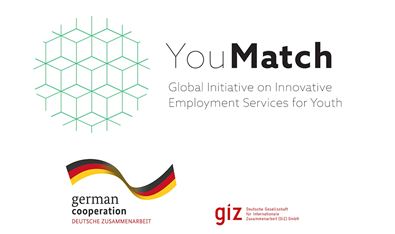
Knowledge Products
Click to download
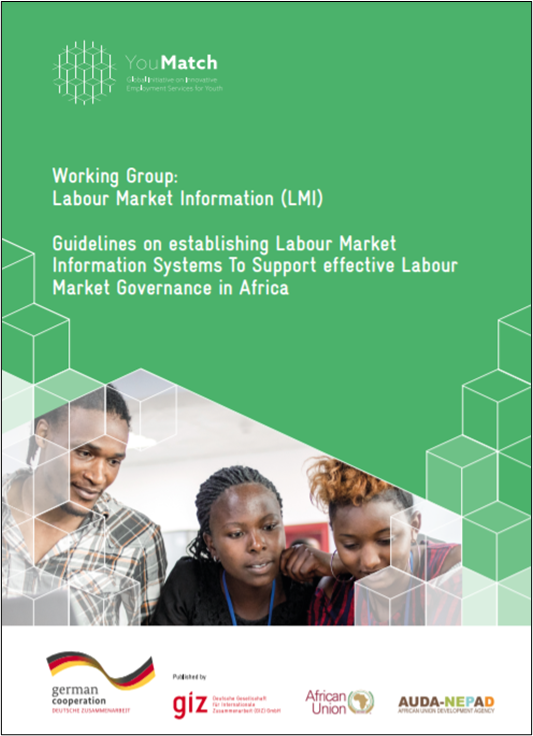 | Producing Labour market information constitutes the coordination of multiple statistical research institutions to make data products available to a wide range of differing stakeholders with varying information needs and demands. Labour market information and analysis (LMIA) systems are networks of institutions (persons) with agreed roles to produce and disseminate.Well-functioning LMIA systems provide an essential basis for effective employment, labour and skills development policies, and can inform the design, monitoring and evaluation of focused and targeted policies. This guideline outlines an approach on how to establish these systems and indicates why previous systems are no longer adequate in current times.
|
|---|
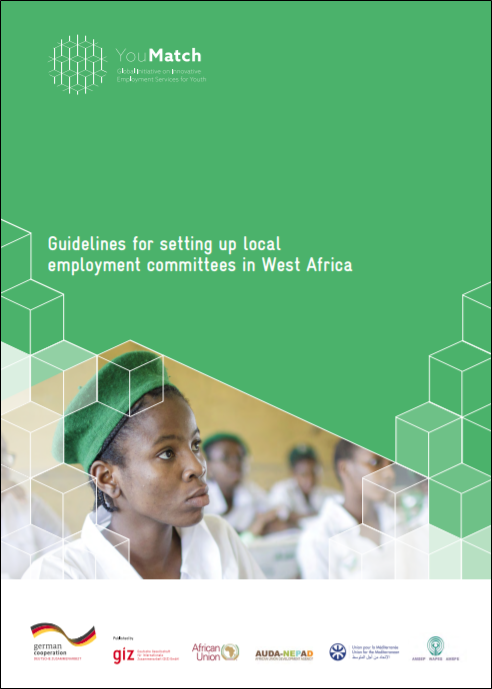 | This publication sets out the main guidelines underpinning the strategic and operational aspects of any move to territorialize/localize employment policy through the establishment of Local employment committees(LECs). Its objective is to encourage decision-makers and those responsible for employment policies to undertake initiatives and reforms for a better adaptation of their national employment policies to territorial specificities and realities, according to the needs, resources and opportunities available. It also aims to provide local actors with clear and practical guidance on how to set up and manage local employment committees (LECs), as well as on the risk factors to be anticipated and the conditions for success to be ensured.
|
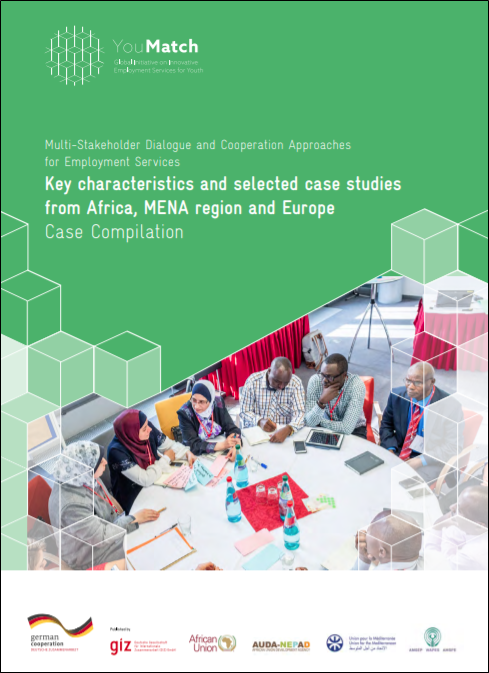 | Approaches for Employment Services'- This document represents a case compilation of different “Multi-Stakeholder Dialogue and Cooperation Approaches for Employment Services”. It presents key characteristics for the design, initiation and implementation of different approaches and summarizes cases studies from YouMatch CoP member countries in Africa, the MENA region as well as examples from Europe. For those planning a dialogue or looking for diverse examples, the different case studies provide inspiration and moreover outline critical challenges as well as benefits of the various models. In addition, selected supportive guidelines and tools are compiled to ease implementation of the various steps of building partnerships and provide hands-on instructions.
|
 | The economic, employment and social challenges arising from the future of work challenges, exacerbated by crises that have taken place in the past two or so decades, have increased the importance of decent and productive employment in the policy agendas of countries in developing countries.In Africa and the Middle East, against this background, the need to turn the growing youth bulge into a demographic dividend has been the main driving force behind the Stand: Erstellt von: Seite 4 observed surge in the revival or strengthening of employment services as a vehicle for increasing access of the youth to employment and in some cases improving the overall implementation of the national employment policies. Unlike in developed and emerging countries, employment services in the target regions, with some exceptions, tend to be weak, lack adequate financial and human resources and offer a low range and quality of services.The ILO and GIZ’s YouMatch Programme have been collaborating in supporting selected member States in sub-Saharan Africa, Middle East and North Africa regions to strengthen employment services for the youth in response to the demand the two organizations have been receiving from the countries in these regions. One of the key topics identified by the participants to the collaboration was guidance on how to establish effective job centres – whether from scratch or strengthening existing structures to deliver better quality and customer-oriented services. This toolkit is amenable to use by all types of employment services depending on their level of development. Although it was customised to the needs of the two regions, it can be used by employment services in other regions.
|
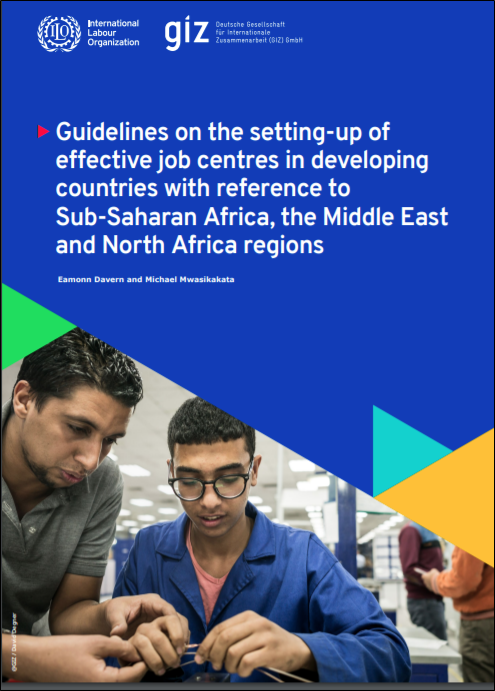 | These Guidelines on how to establish job centres (employment service centres) were developed in response to calls from the International Labour Organization (ILO) constituents and theYouMatch Project partner countries in sub-Saharan Africa (SSA) and the Middle East and North Africa (MENA) regions. YouMatch is a project that was implemented by the Deutsche Gesellschaft für Internationale Zusammenarbeit (GIZ) GmbH on behalf of the German Federal Ministry for Economic Cooperation and Development (BMZ).The publication provides guidance for the respective countries in these regions and form part of a series of ILO guidelines developed for different regions around the world. The Guidelines provide an overview both of the context and state of employment services in the SSA and MENA regions and the steps to be undertaken when establishing and strengthening PESs. Although the focus is on PES, the target is the delivery of publicly funded employment services through public, private or third sector organizations. The main audience is policy-makers and technical officials at all levels in PES and in ministries responsible for labour, private employment agencies (PrEAs), business and third sector actors that implement employment services. The Guidelines are accompanied by the detailed ILO/ YouMatch Toolkit which was published by GIZ
|
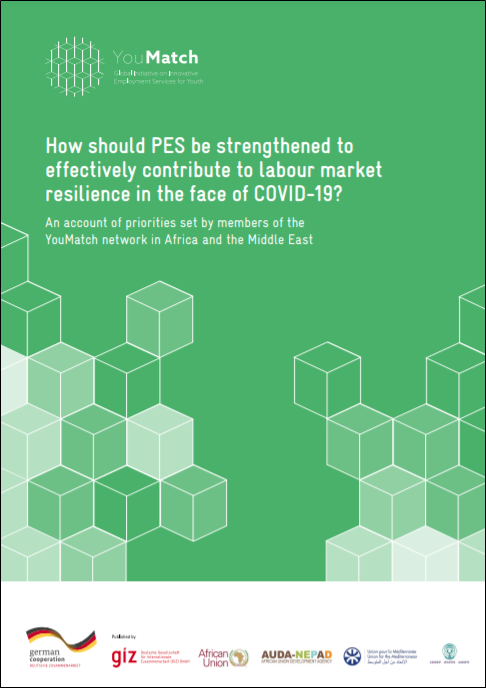 | Because of their role in helping firms and workers adjust to changing labour markets and coping with the related challenges, PES have a key role to play in crisis mitigation and recovery. Therefore, policy makers ought to pay special attention to PES to meet the challenges brought about by the pandemic. This paper summarizes the learnings of the YouMatch network in Africa and the Middle East on how to best cope with the COVID-19 crisis and some of the necessary steps to be taken for the PES to become strong players in recovery. It is based on the findings of a series of virtual workshops and bilateral exchanges that were held between June and November 2020 with a selection of PES practitioners on the ground from some of the member countries. It is an attempt to summarize the most burning issues that should be considered in future policy-making processes.
|
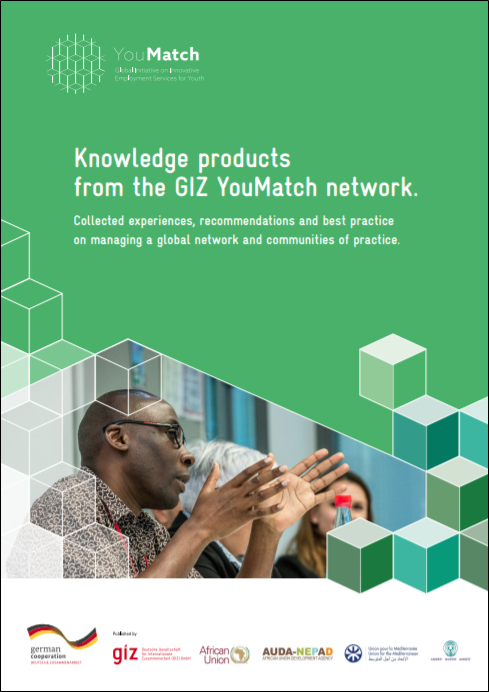 | Collected experiences, recommendations and best practice on managing a global network and communities of practice. The knowledge products (KP) from the YouMatch network (YM) are a compilation of the experiences from YouMatch on core processes and best practices, combined with practical recommendations on managing a network with Communities of Practice (CoPs) and individual stories from nine member countries.The KP follow a strategic purpose: they shall be used by potential future hosts of the YM network or parts of it (respectively the CoP as core elements) to apply the experiences and concepts for managing the network structure autonomously. Furthermore, the KP shall also be applicable as guidance for managing comparable networks in other sector areas and therefore, serve a wider target group outside the present scope of the YM Initiative.The KPs are comprised of the first part “Process Documentation and Knowledge Products” and look at YM key processes and learning experiences. The second part consists of three knowledge “packages” on 1) Community Management, 2) Elaboration of Guidelines and Policy Recommendations and 3) Transfer of CoP Learnings to National Levels. The first part shall give an overview of the setup of the network and summarize what YM has been doing and how. The second parts shall serve as guides on the above mentioned three knowledge formats, with clear recommendations and check lists for application of the YM networks’ experience.
|







